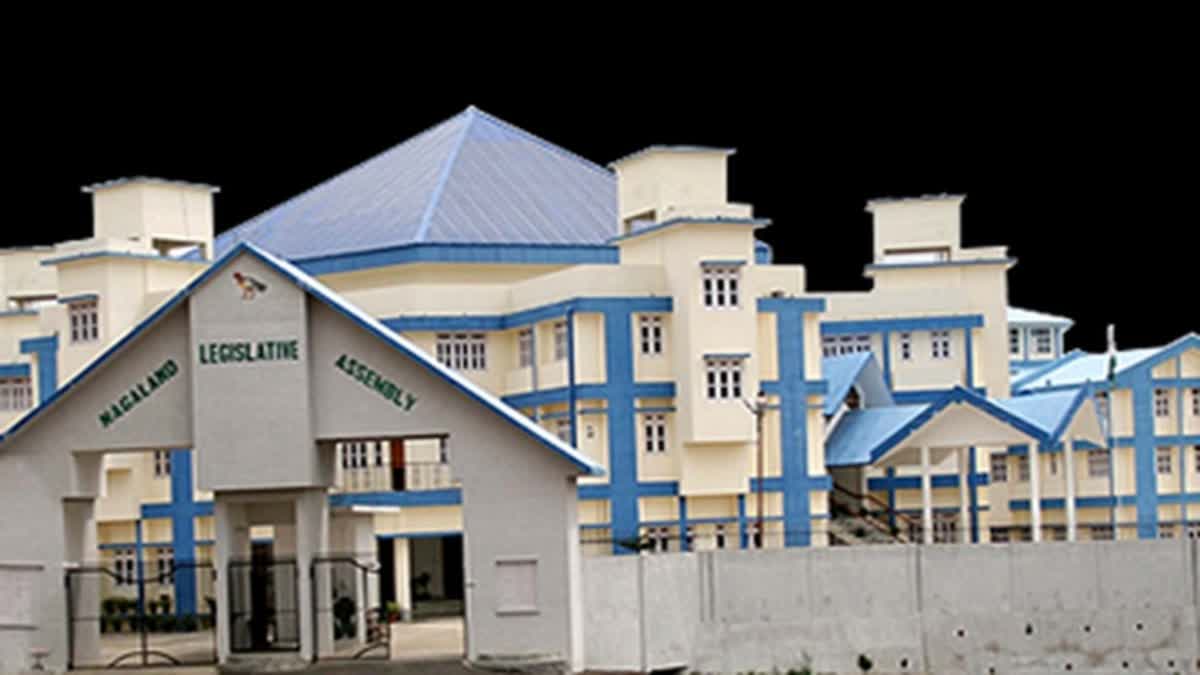Kohima: The Nagaland Assembly on Tuesday resolved not to hold the elections for the urban local bodies (ULBs), which were scheduled to be conducted on May 16 after two decades. The House passed a resolution in this regard, which was moved by Parliamentary Affairs Minister K G Kenye.
Several Naga tribal bodies and civil society organisations opposed holding the ULB election under the Nagaland Municipal Act (NMA) 2001, asserting that it infringes on the special rights for Nagaland guaranteed by Article 371(A) of the Constitution. The 2001 Act which was amended later made 33 per cent reservation of seats for women mandatory to hold the ULB election, as directed by the Supreme Court.
The Assembly on Tuesday also passed a resolution to repeal the legislation, days before the filing of nominations is scheduled to start on April 3. ULB elections were last held in the state in 2004. Moving the resolution, Kenye said that the House has noted the stiff voices of opposition to the ULB elections under the NMA by tribal bodies, civil society organisations and every section of the society.
He said, The House has also taken note that the implementation of the Nagaland Municipal Act 2001 has always been fraught with much controversy due to the public perception that it runs contrary to the spirit of Article 371A. While the government was gearing up for conducting the polls on May 16, various tribal bodies and other organisations passed resolutions for overhauling the NMA 2001 so that it is in consonance with the provisions of Article 371A of the Constitution and till then, they refuse to participate in the ULBs elections, the minister said.
The House deliberated on the matter and resolved that the ULBS elections cannot be conducted unless the NMA 2001 is repealed. The House unanimously decided that the Act will be taken up for repeal with immediate effect, and a law will be enacted to govern the ULBs, which will take into consideration the grievances of all the interested parties so that the elections could be conducted.
Subsequently, the Assembly passed The Nagaland Municipal Act, 2001 (Repeal Bill) 2023 introduced by Chief Minister Neiphiu Rio. The resolutions were passed around two weeks after the State Election Commission on March 9 announced that it will hold polls for 39 ULBs on May 16 with 33 per cent reservation of seats for women.
ULB elections in the state have been long overdue as the last polls were held in 2004. Since then, elections were not conducted first on the unresolved Naga peace talks and then on 33 per cent reservation for women which the tribal bodies opposed. In 2017, the government had withheld the decision to conduct the election after clashes left two persons dead and several others injured on the eve of the day of voting.
The clashes also led to the setting ablaze of the Kohima Municipal Council office and adjoining government offices in the state capital and elsewhere.
Various tribal organisations have been opposing the ULB elections with 33 per cent reservation for women, asserting that it infringes on the special rights for Nagaland guaranteed by Article 371(A) of the Constitution. However, on March 9, 2022, representatives from across the Naga society unanimously agreed that elections to ULBs should be held with 33 per cent reservation for women.
The decision was taken during a consultative meeting of all stakeholders including civil society organisations, churches, tribal bodies, political parties and NGOs convened by the state government in the presence of legislators. However, the chief minister on Monday hinted that the civic polls might not be held if tribal hohos (organisations) and civil society organisations continue protesting against it.
"The state government is acting only on the directive of the Supreme Court but if the tribal hohos, civil society bodies and Naga people don't want the polls, the government is not prepared to confront them," he had told reporters. A consultative meeting of eight tribal hohos observed that any part of the NMA that infringes upon Article 371A should be "reviewed and rewritten" in complete consonance with the voice of the Naga people. (PTI)



